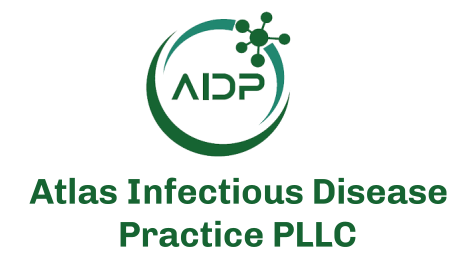
A recent systematic review and network meta-analysis has examined the effectiveness of various treatments for Clostridioides difficile infection (CDI), a major cause of healthcare-associated diarrhea with significant morbidity and mortality. The study, led by researcher Dániel Steve Bednárik, consultant physcian and gastroenterologist, and his team, analyzed 73 randomized controlled trials (RCTs) evaluating 28 different CDI therapies, including recurrent and non-recurrent cases.
Bednárik explained the importance of the study, stating, “CDI is a severe and growing problem worldwide, so our research group considered it a valuable topic for analysis to determine the most effective therapy available today.” In choosing to perform a network meta-analysis, Bednárik’s team sought to compare all available treatments. “Several RCTs in the field have compared two or three treatments, but we decided to conduct a network meta-analysis, allowing us to compare not only two treatments but all treatments that have been trialed against CDI or are currently used in daily practice.”
The 28 treatments included in the analysis were not chosen by the research team but were instead identified through existing literature.“Meta-analysis follows a strict, standardized methodology. We specifically sought randomised controlled trials examining CDI treatment in adult patients,” Bednárik said. Through an exhaustive search of databases such as MEDLINE, EMBASE, and Cochrane, the team included only studies that met predefined criteria. Ultimately, 73 relevant publications were included.
The study found fecal microbiota transplantation (FMT) to be the most effective treatment for CDI, both in terms of cure rate overall and specifically for recurrent CDI cases. Bednárik acknowledged the barriers to its widespread clinical adoption. “FMT is becoming an increasingly widespread technique, though it is not yet routine in all centres. As clinicians gain more experience, the number of procedures is expected to increase,” he said. “An important limitation to the widespread adoption of FMT is that not all institutions have the necessary technical and personnel resources for the procedure. Another significant challenge may be the cost of FMT, which is considerably higher than that of most antibiotic treatments.”
In light of these barriers, Bednárik emphasized the need for further research. “We believe that further research is needed for non-recurrent infections. Comparative studies are required to determine whether the oral or anal route of therapy is more effective and by which method. Long-term follow-up is also essential to monitor recurrence and identify any potential side effects.”
The Role of Probiotics in CDI Prevention
The study also found that probiotics were not effective in preventing CDI. Bednárik urged a critical reassessment of their use in clinical practice. “According to our analysis, the clinical relevance of probiotics should be assessed with great caution, and further studies are required. Even other recent publications suggest that the effect of probiotic supplementation remains questionable, and clinical findings should be carefully reconsidered,” he noted.
As for alternative prevention strategies, Bednárik emphasized the importance of other antibiotics and treatments for reducing recurrence. “Our analysis indicates that the use of fidaxomicin or ridinilazole in initial infections is more likely to prevent recurrence. In addition to these antibiotics, bezlotoxumab may also be a promising option for recurrence prevention.” These insights align with the recommendations in current guidelines from the European Society of Clinical Microbiology and Infectious Diseases (ESCMID) and the Infectious Diseases Society of America (IDSA). However, he stressed that additional research is still necessary.
Addressing Study Heterogeneity
What You Need To Know
FMT is the most effective treatment for CDI, particularly in recurrent cases, but faces barriers to widespread adoption due to cost and resource limitations.
Probiotics are not effective in preventing CDI, with the study calling for a critical re-evaluation of their clinical use and further investigation into their true impact.
Fidaxomicin and ridinilazole show promise in preventing recurrence of CDI in initial infections, with bezlotoxumab also emerging as a potential option for recurrence prevention.
Given the complex nature of CDI treatment, the researchers encountered significant heterogeneity across the studies included in the meta-analysis. Bednárik explained how variations in study designs, dosages, and treatment durations presented challenges. “We encountered significant heterogeneity during our analyses. We observed variability in dosages, treatment durations, and follow-up periods. We tried to refine our analyses by preparing subgroup analyses based on the aforementioned characteristics,” he said. However, due to inconsistent reporting and a lack of comparable studies, several subgroup analyses were not feasible.
Despite these challenges, the team was able to conduct several key analyses, including a dose-based subgroup analysis for vancomycin. “The 125mg dosage proved to be significantly more effective than 500mg in non-recurrent cases,” he explained. Additionally, the analysis compared probiotics based on composition and examined different FMT administration methods. “A comparison of oral and colonoscopic FMT administration methods revealed no observed difference in effectiveness,” he added.
While FMT has emerged as the most effective treatment for CDI, the study’s findings highlight the need for continued research to optimize treatment protocols and evaluate long-term safety. Bednárik concluded, “We are also gaining further insight into possible side effects. Further research is needed to determine the best methods for FMT and to better understand its long-term impact on patients.”
A study from November 2024 further supports the findings of the network meta-analysis on CDI treatments. The study, which involved a Bayesian network meta-analysis of 17 randomized controlled trials with 4,148 patients, concluded that FMT via the lower gastrointestinal route (LGI) was the most effective treatment for rCDI.2 This supports earlier findings that FMT outperforms antibiotics like vancomycin and fidaxomicin in treating rCDI, primarily due to the disruption antibiotics cause to the gut microbiota. Both studies suggest further clinical trials to optimize treatment strategies, including exploring the safety, efficacy, and long-term outcomes of FMT and other microbiota-based therapies.






